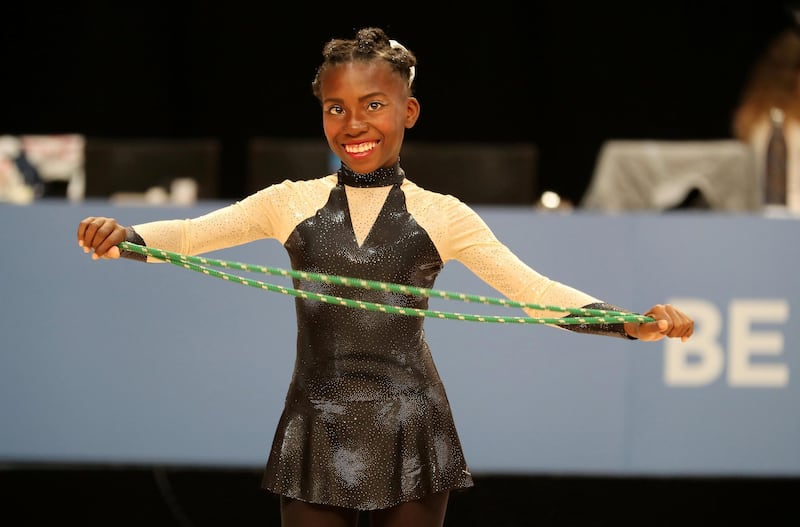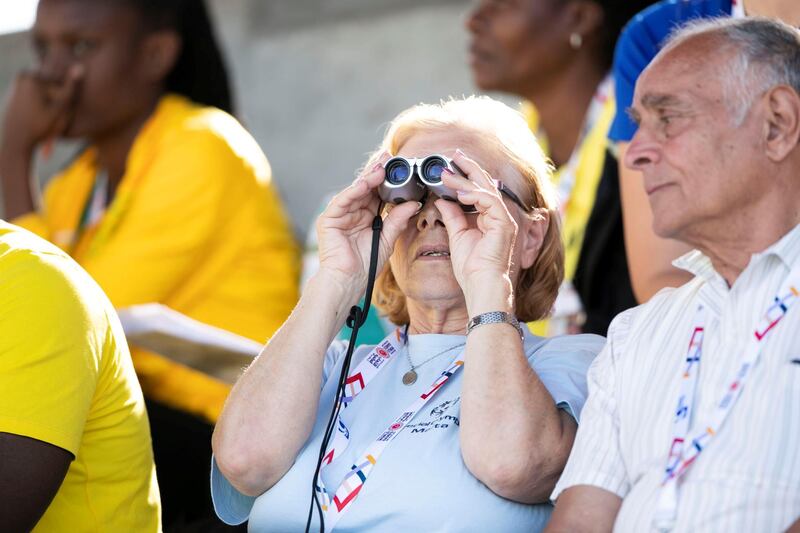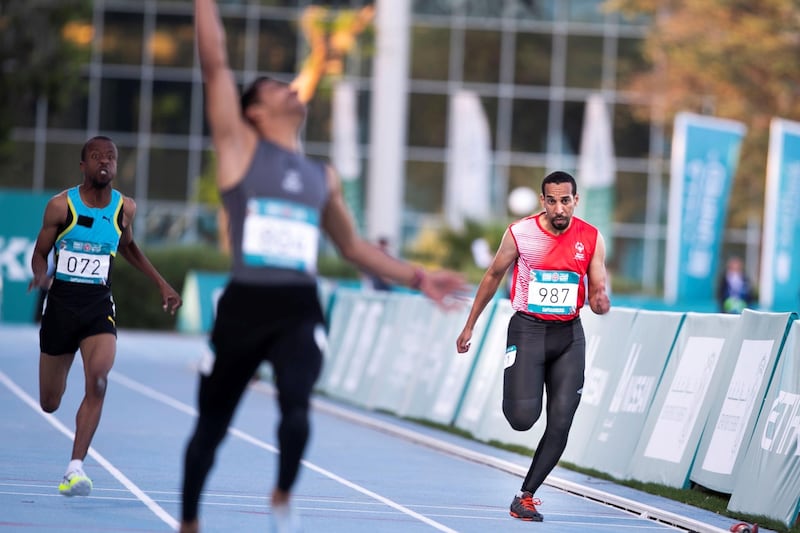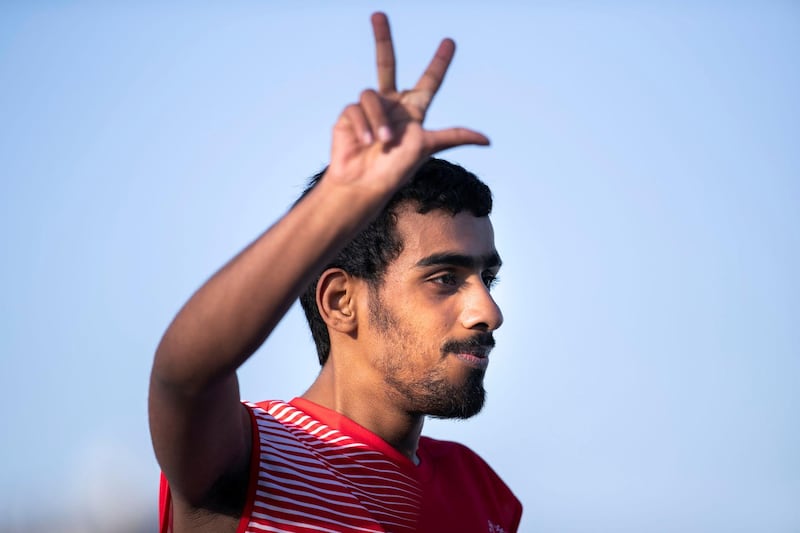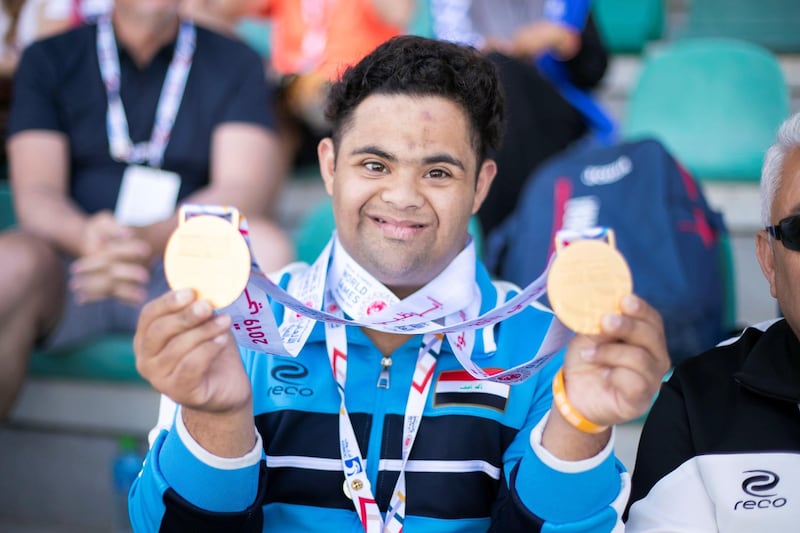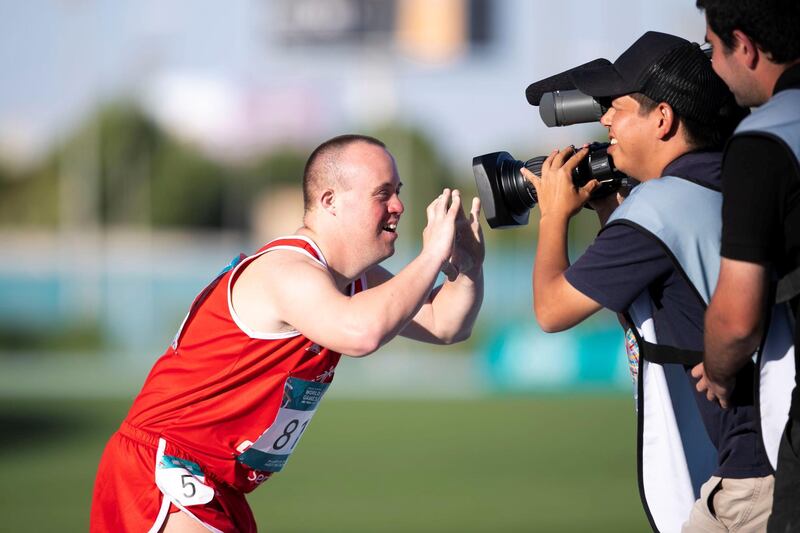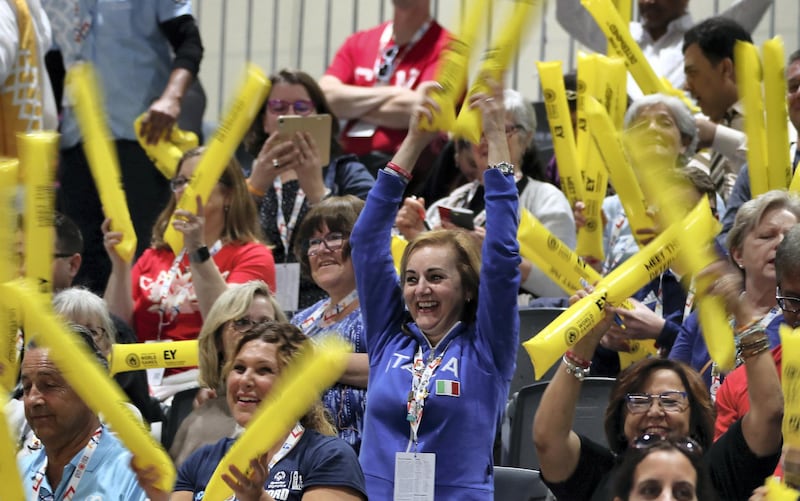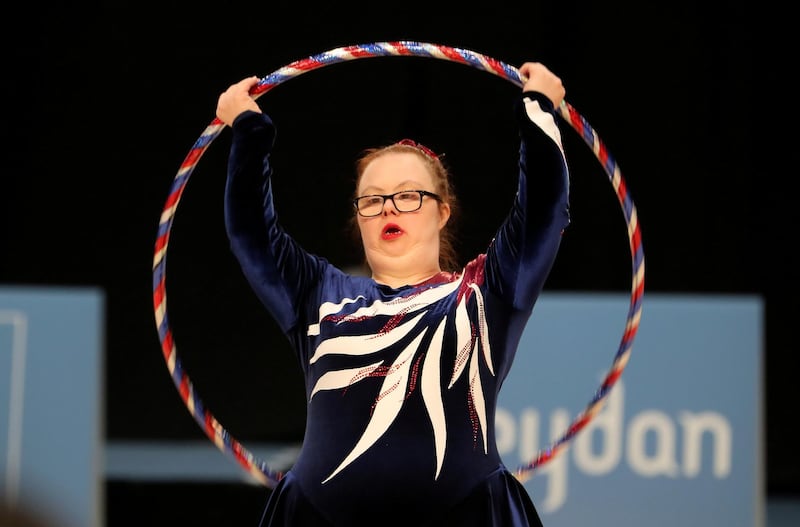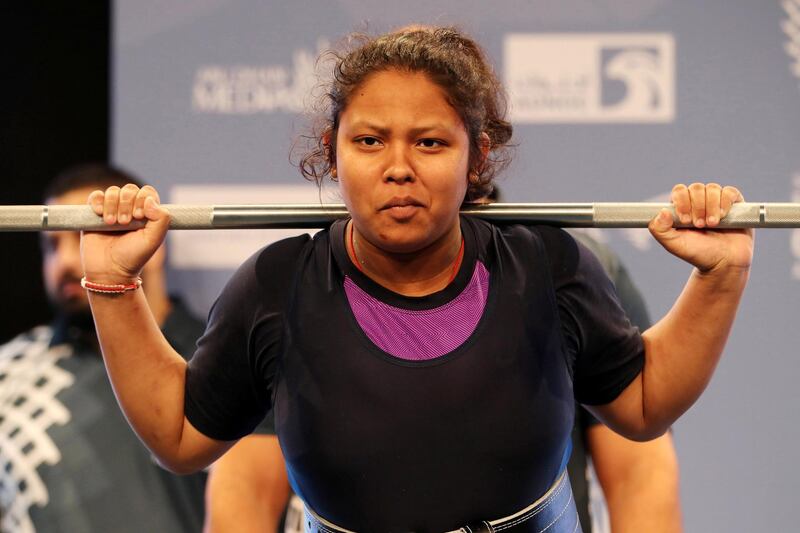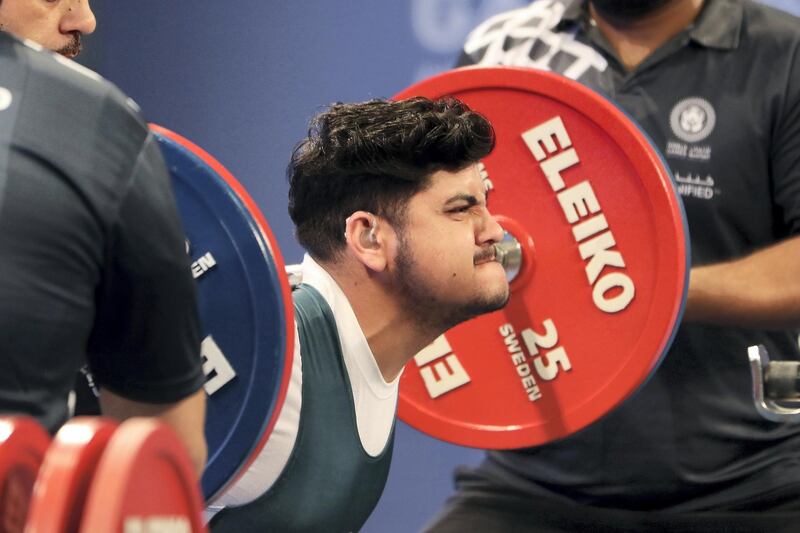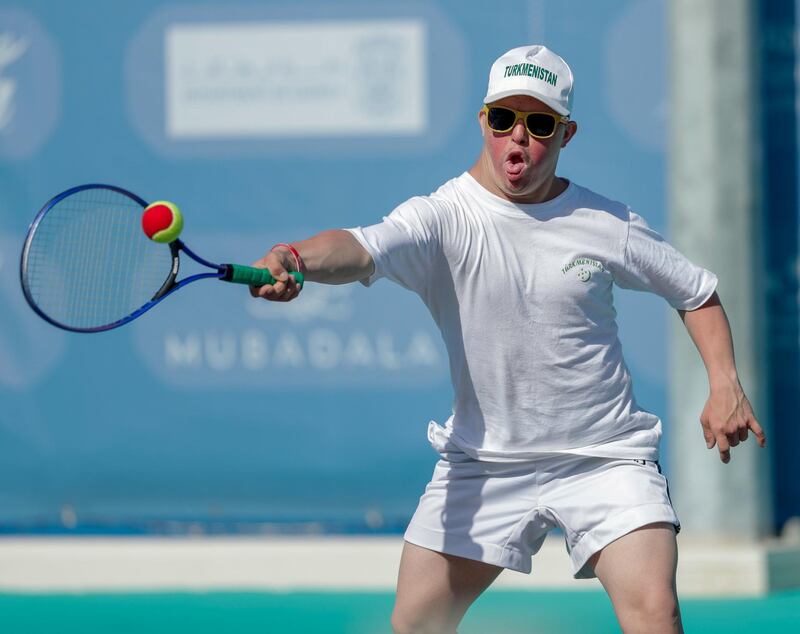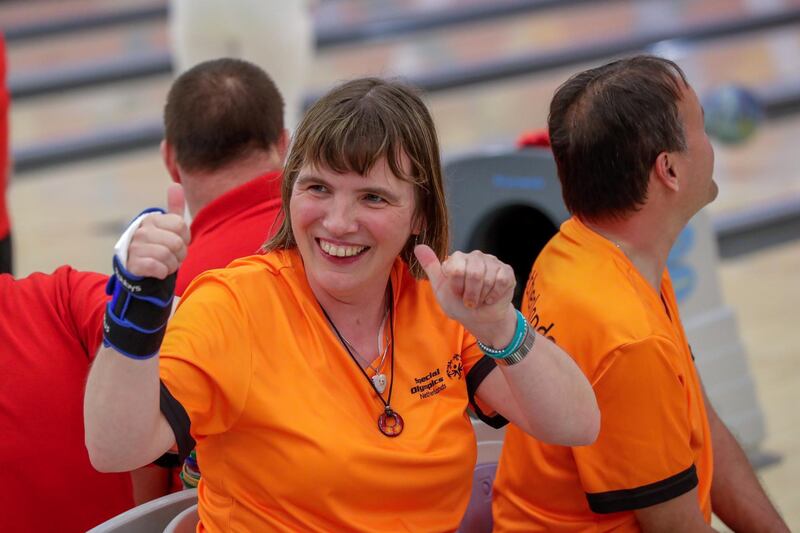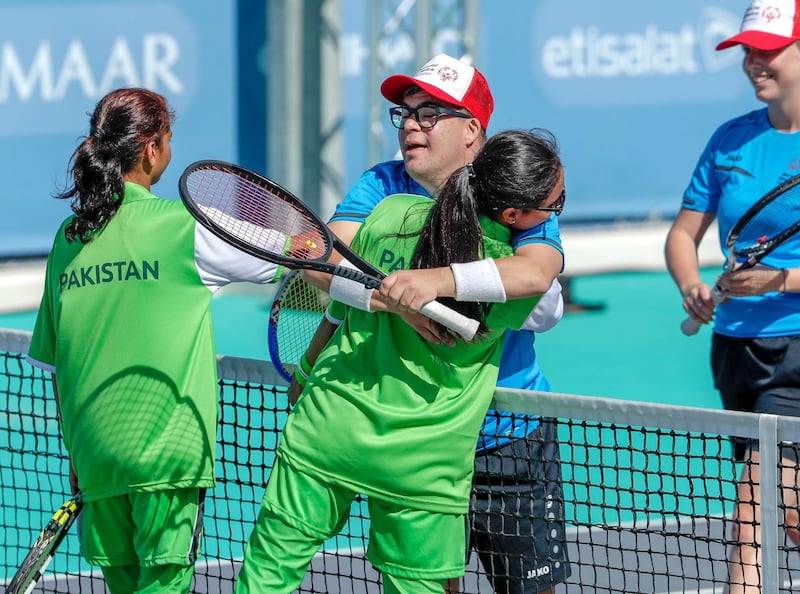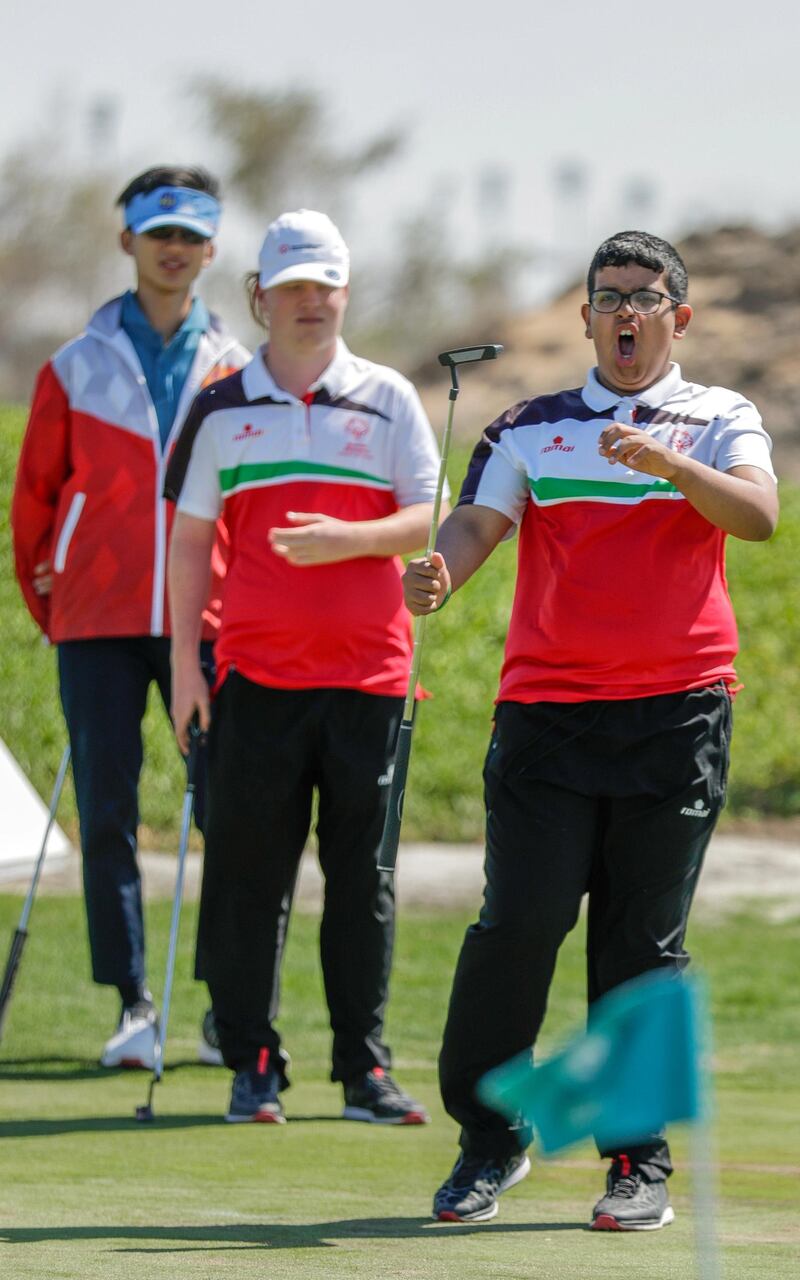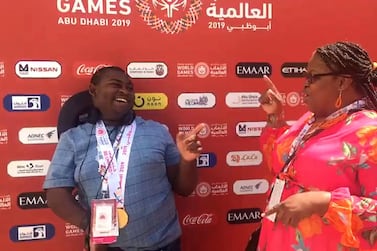The teams have departed, but while the memories of the Special Olympics will long remain, they are only part of the legacy of an event whose life changing potential is just beginning to unfurl.
More than 7,500 athletes from 190 countries took part in the week-long Games. That means at least 7,500 stories of determination, courage, and perseverance all of which are compelling and uplifting, and who were given a fitting tribute on Thursday night at the closing ceremony.
Chairman Tim Shriver, the son of Special Olympics founder Eunice Kennedy Shriver, declared the Abu Dhabi Games “the best in the history of the Special Olympics movement”.
"Sometimes, the world can be cruel," he said.
“So be tough. Be tougher than the tough. Be strong. Be ready. Be you and be free.
Tough is a word that could definitely be applied to Joseph Bradley, who was so badly beaten by his father at the age of two that he was left with permanent brain damage.
Now 19, Bradley, from Alabama in the US, is celebrating gold and bronze medals in the equestrian classes of the Games. No wonder his mother calls him “my miracle.”
And Ephraim Mohlakane, 41, is a sports coach for a leading private school in Johannesburg and the assistant head of the South African team. He suffers from an intellectual disability that restricts his ability to read and write, but now supports a wife and two children.
Without the Special Olympics, he says, “I would just be sitting, doing nothing, learning nothing.”
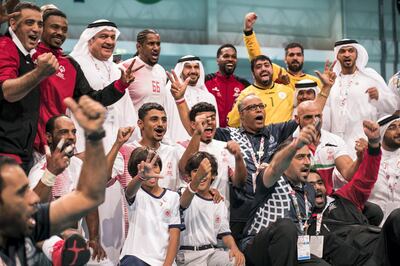
For those diagnosed with intellectual disabilities, and their families, the Special Olympics are a ray of hope, not just for sporting achievements but because they represent how children can grow to live meaningful lives, fully engaged in society.
It is a lesson understood in many countries, but yet to be fully appreciated in others. Some parts of the world still hide away those considered outside the accepted norms. Sometimes, they are even regarded as cursed by supernatural forces.
Holding the games in Abu Dhabi and in the Middle East and North Africa Region for the first time is a powerful signal that the UAE, so widely regarded and respected in much of the developing world, is a champion of those some call disabled, but who the Emirates describes as “people of determination.”
Yet no country can afford to be complacent. A recent study of 4,250 people in eight Middle East countries, including the UAE, found that a majority believed those with intellectual disabilities should be sent to special schools rather than integrated in mainstream education.
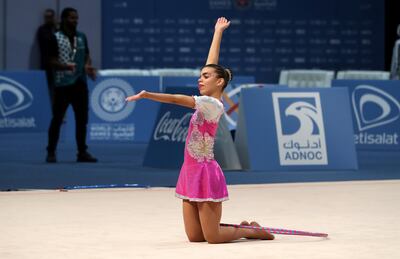
There was also a widespread belief that they should be given work to fill quotas rather than because they possessed real skills. The same poll found a large number of people felt uncomfortable interacting with those who have intellectual disabilities.
The widespread coverage of the Abu Dhabi games, both at home and abroad, is a powerful message for change. It will also encourage and strengthen the determination of governments everywhere to do more.
The UAE has played its part in this, supporting 14 African countries to send teams to the Special Olympics for what was the first, but almost certainly will not be the last, time.
Four more African countries sent observers with the hope that this will lead to the setting up of permanent Special Olympics programmes back home.
As Charles Nyambe, regional president and managing director of the Special Olympics for Africa, put it: “I think in Africa we have much more work than in most of the world. People with intellectual disabilities have been hidden away for too long.”
Some government leaders have left the Special Olympics in tears, he said. “They have said, ‘The reason I am shedding tears is because I am ashamed of myself, because I’m the official responsible for driving human rights and we’ve been discriminating against a population’.”
For members of the Saudi team, it was the first time some had been away from home and from their families.
Those small victories, as much as any on the field or track, demonstrates how attitudes are changing in the kingdom, said Dr Heidi Alaudeen, director of Diversity and Inclusion and Partnerships for the General Sports Authority of Saudi Arabia.
“It’s no longer about giving and being kind. They are in the community and it’s not only about taking care of them. They can also give back to their communities,” she said.
An immediate legacy of the games for the UAE is a programme that will pair pupils both with and without disabilities in the country’s public schools.
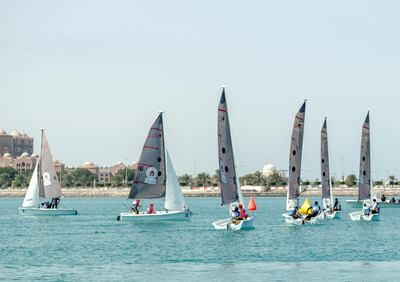
Unified Champions Schools became mandatory from Monday, with the long-term ambition of promoting greater inclusion in all aspects of life.
The Special Olympics has shown people that those with intellectual disabilities still have other talents, said Dr Rose Kamath, counsellor at Emirates International School in Dubai.
“This has created an awareness in the public that every individual has their own spark. We have to see what their abilities are and where their talents lie,” she said.
For the UAE and Abu Dhabi, the Games have further confirmed the country’s readiness to host major international events, and to do so both efficiently and joyously.
It is a strong message that the UAE will throw its full resources to make these high-profile events a success, as demonstrated by the involvement and support of its leaders, including Sheikh Mohamed bin Zayed, Crown Prince of Abu Dhabi and Deputy Commander of the UAE Armed Forces, and Sheikh Mohammed bin Rashid, Vice President and Ruler of Dubai.
For the future, there is also a message from the past, spoken by Baron de Coubertin, the founder of the International Olympic Committee in 1894, and whose daughter, Renée, may have suffered from an intellectual disability.
“The important thing in the Olympic Games is not to win, but to take part; the important thing in life is not triumph, but the struggle; the essential thing is not to have conquered but to have fought well.”
“To spread these principles is to build up a strong and more valiant and, above all, more scrupulous and more generous humanity.”
